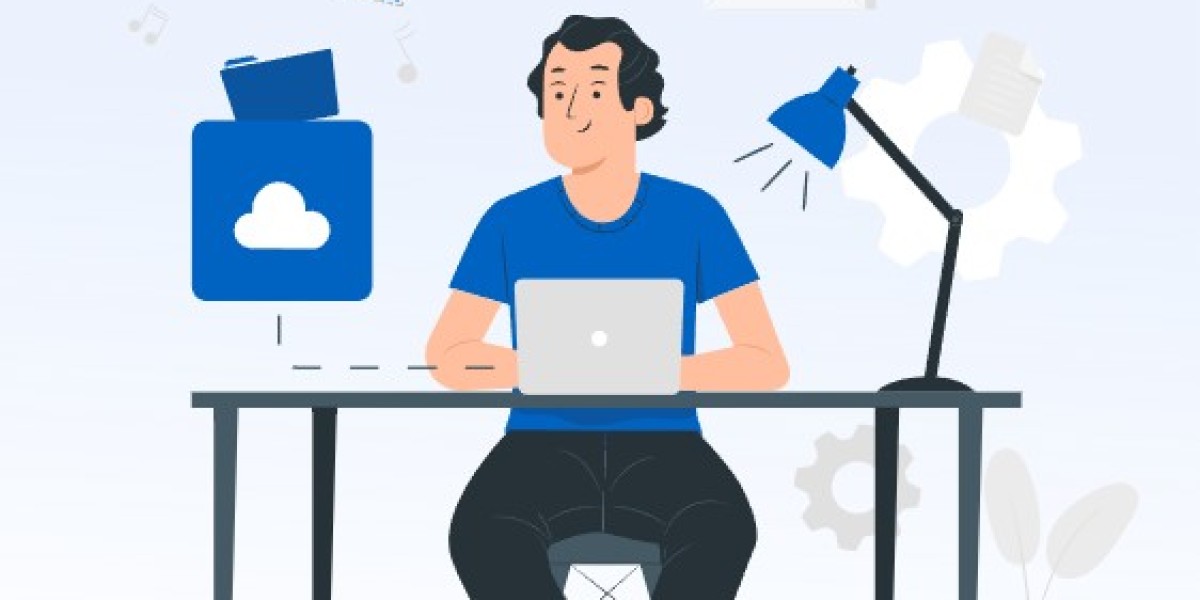Hiring the right Windows app developers for your organization is crucial to the success of your software projects. Windows app development, while similar to other platforms in many ways, requires specialized knowledge and skill sets. Assessing the skills and experience of Windows app developers during interviews can be challenging if you're not familiar with the intricacies of the technology. This comprehensive guide will walk you through the steps you should take to evaluate potential candidates and hire Windows app developers who are well-suited for your development needs.
1. Understand the Skills Required for Windows App Development
Before diving into the interview process, it’s essential to have a clear understanding of the skills and experience required for Windows app developers. Some key skills you should look for include:
a. Proficiency in Programming Languages
Windows app developers typically need to be proficient in several programming languages and frameworks. The most common ones are:
- C#: The primary language for developing Windows apps using Microsoft technologies.
- C++: Used for performance-critical applications and for interacting with low-level APIs.
- JavaScript/TypeScript: Especially if the developer is working with Windows Presentation Foundation (WPF) or Universal Windows Platform (UWP) apps.
- XAML: For creating the user interface (UI) in UWP apps.
- .NET Framework and .NET Core: A foundational framework for developing Windows apps.
b. Experience with Development Tools and IDEs
A strong familiarity with Visual Studio, the primary integrated development environment (IDE) for Windows app development, is vital. Developers should also be comfortable using Git, debugging tools, and performance profiling software.
c. Familiarity with Windows APIs and SDKs
Developers should be well-versed in Windows APIs and Software Development Kits (SDKs) to interact with the operating system and other system components. Knowing how to use the Windows API is crucial for Windows-specific functionality, such as file system management, networking, or inter-process communication.
d. UI/UX Design Principles for Windows Apps
Windows app development isn’t just about functionality – user experience plays a significant role. Developers should understand the guidelines for designing UWP apps, which adhere to Microsoft’s Fluent Design System, or Win32-based desktop apps.
e. Familiarity with Databases
Many Windows applications require backend databases. The developer should be comfortable with Microsoft SQL Server, SQLite, or other relational databases commonly used in Windows environments.
f. Version Control and CI/CD
Knowledge of version control systems (e.g., Git) and understanding of Continuous Integration/Continuous Deployment (CI/CD) processes are essential in modern software development practices.
2. Preparing for the Interview
Once you understand the skills you need, it’s time to plan how to assess them during the interview. Preparing the right set of questions, tasks, and scenarios is essential to evaluating the candidate’s proficiency.
a. Technical Questions
Technical questions help assess the candidate’s foundational knowledge and problem-solving abilities. Some examples of technical questions include:
- C#-specific questions: "Can you explain the difference between a struct and a class in C#?"
- C++-specific questions: "What is the difference between stack and heap memory in C++?"
- API questions: "How would you interact with Windows APIs in a C# application?"
- UI/UX questions: "What are the primary considerations for creating a user-friendly Windows application?"
b. Practical Coding Tasks
One of the most effective ways to assess a candidate’s coding skills is to give them a coding task during the interview. Here are some practical tasks you can ask:
- Build a simple Windows application: Ask the candidate to create a small Windows application using C# or another language. This could involve building a UI with buttons, text fields, and a database connection.
- Debugging exercise: Provide the candidate with a broken piece of code and ask them to identify and fix the issue.
- Code optimization: Give them a code snippet and ask how they would optimize it for performance.
- Cross-platform task: For candidates with experience in UWP, you can ask them to build an app that works across multiple Windows devices (e.g., desktops, tablets, and phones).
c. Behavioral Questions
Behavioral questions help you understand how the candidate handles different work situations. These questions also provide insights into their collaboration skills, work ethic, and problem-solving approach. Some example questions are:
- “Can you describe a time when you had to solve a particularly difficult problem while developing a Windows application? How did you approach it?”
- “Tell us about a time when you had to collaborate with a UI/UX designer to improve the user experience of an app. How did you handle the feedback?”
- “How do you manage the testing and deployment of your applications?”
3. Assessing Specific Experience
In addition to the candidate’s technical knowledge, it’s essential to evaluate their experience. Below are key areas to focus on:
a. Portfolio of Previous Projects
A candidate’s portfolio provides valuable insights into their experience. Ask for links to their previous projects, GitHub repositories, or apps they have worked on. You should pay attention to:
- The complexity of the applications they’ve worked on.
- Whether they have experience with Windows-specific technologies (e.g., UWP, Win32, WPF).
- If they have any experience with enterprise-level applications or large-scale projects.
b. Experience with Legacy Systems
Windows app development often involves working with legacy applications. A developer who has experience in maintaining and updating legacy systems will be valuable, especially if your company has older Windows applications that need attention.
c. Cross-Platform Development
While Windows apps are typically built for Microsoft environments, many developers also have experience creating cross-platform apps using technologies like Xamarin, .NET MAUI, or Electron. This can be beneficial if your company plans to expand its app ecosystem beyond Windows.
d. Knowledge of Agile and DevOps Methodologies
Many development teams work within Agile frameworks and DevOps practices. Developers should be familiar with tools like Jira, Azure DevOps, and the Scrum methodology. Assessing whether they’ve worked in Agile teams and can integrate smoothly into your organization’s workflow is essential.
4. Evaluate Problem-Solving and Critical Thinking
Windows app developers often encounter unique challenges, especially when dealing with system-level APIs, performance bottlenecks, or user interface quirks. To assess a candidate’s problem-solving skills, you can give them:
- Case studies: Present a hypothetical scenario where the candidate has to make a critical decision about application architecture or solve a difficult technical challenge.
- System design questions: Ask them to design a system or a specific feature, such as creating a Windows app that communicates with a server over HTTP or handles large datasets efficiently.
Pay close attention to their thought process. Are they logical in breaking down the problem? Do they ask clarifying questions before jumping into a solution? A strong developer will be able to articulate their approach clearly and justify their design decisions.
5. Cultural Fit and Communication Skills
A Windows app developer might possess excellent technical skills, but they must also be able to fit into your company’s culture and communicate effectively with the rest of the team. This is especially important if your development team includes remote workers or if the developer needs to work directly with non-technical stakeholders, such as product managers or designers.
Some tips for assessing cultural fit and communication skills include:
- Assess their teamwork experience: Ask about their past experiences working on collaborative projects and how they handle conflict resolution.
- Test their communication skills: Have them explain a technical concept, like memory management in C#, to someone who may not be technically savvy.
- Gauge their adaptability: Windows app development can involve frequent updates and changes. Ask about a time when they had to adapt to new tools or technologies on a project.
6. Finalizing the Hire: How to Make the Right Choice
After conducting the interview, it’s important to carefully assess the candidate's performance across all areas. If you are unsure about a specific aspect of their skills, you may consider conducting a second round of technical interviews or a trial period to see how they perform on actual projects.
Key Factors to Consider:
- Depth of technical knowledge: Does the candidate have the expertise required for your specific Windows app development needs?
- Experience with relevant tools and frameworks: Have they worked with the tools your team uses, such as Visual Studio, .NET, and Windows SDKs?
- Problem-solving ability: Did the candidate approach problems logically and find effective solutions?
- Cultural fit: Will the candidate integrate well into your team and company culture?
If you’re looking to hire Windows app developers, make sure to focus on both technical skills and soft skills. Finding the right balance between these qualities will ensure that you hire developers who can deliver high-quality applications while collaborating effectively within your team.
Conclusion
Assessing the skills and experience of Windows app developers during interviews is a multi-step process that requires a combination of technical evaluation, experience assessment, problem-solving testing, and cultural fit considerations. By focusing on these areas, you’ll be able to hire Windows app developers who are well-equipped to meet your company’s development needs and contribute to the success of your software projects. Ensure that you test for both their technical prowess and their ability to work within your team, as these factors are key to finding the right developer for your business.
Naijamatta is a social networking site,
download Naijamatta from Google play store or visit www.naijamatta.com to register. You can post, comment, do voice and video call, join and open group, go live etc. Join Naijamatta family, the Green app.
Click To Download


